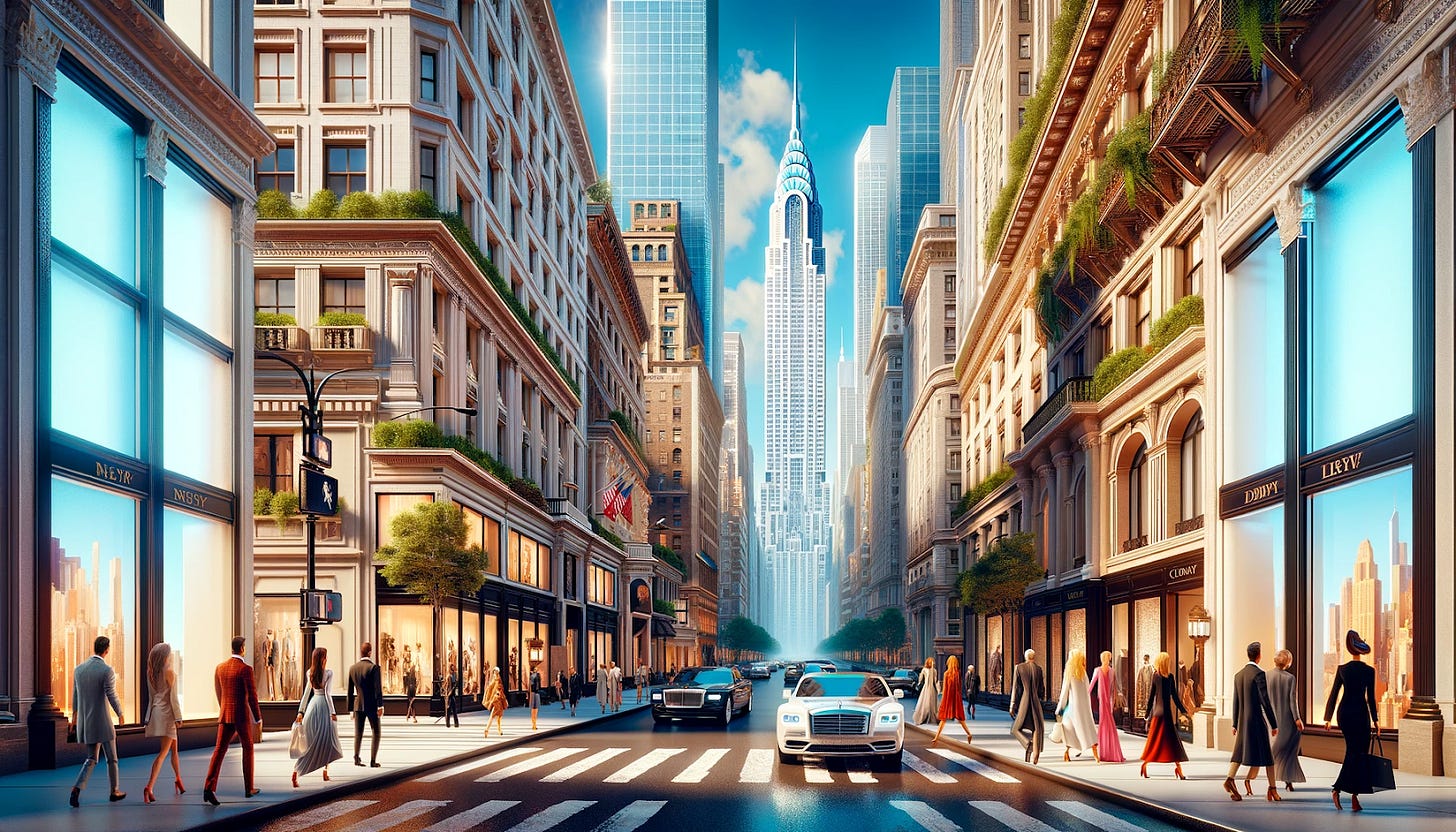Billionaire’s Row, The Crown Building and Retail Condos
Why Prada and other European fashion brands are buying instead of leasing in Manhattan's luxury retail and residential corridor
From the April 25th The Real Deal article: Prada buys retail condo on Billionaire’s Row
Each week, we break down a major real estate news story, explaining what it means and why it matters. Great for people who want to better understand the real estate industry.
Prada bought a small retail condo in the Crown Building for $12.6 million, adding to its $835 million real estate portfolio around Billionaire’s Row.
This week, we’ll break down:
Where and what is Billionaire’s Row
The Crown Building’s recent conversion
Retail condos, and why European fashion brands are buying them
Where and what is Billionaire’s Row?
Billionaire's Row refers to a set of ultra-luxury residential skyscrapers in Manhattan along the South edge of Central Park.
The development in the area started in the 2010s with buildings like One57, 432 Park Avenue, and 111 West 57th Street.
It houses billionaires from around the world like Michael Dell (bought two floors at One57 $100.47 million in 2015), Bill Ackman (bought bi-level apartment in same building for $91.5 million), and Fawaz Al Hokair (bought penthouse at 432 Park for $87.7 million).
What is the Crown Building?
The Crown Building is a landmark within Billionaire’s Row at Fifth and 57th.
It used to be an office building, but was converted into luxury condos and an 83-room, ultra luxury Aman hotel in 2022, where rooms start at $3200 per night but can go as high as $36,000.
The Aman Hotel in the Crown Building in NYC’s Billionaire Row
This conversion is a notable example of historic office buildings in prime locations being repurposed to meet the growing demand for high-end residential and mixed-use properties.
Retail condos, and why European fashion brands are buying them
Retail condos are commercial retail spaces that are subdivided into units and individually owned rather than leased from a single property owner.
This concept parallels residential condominiums where the ownership of individual units within a building is legally allowed. In a retail condo, each unit owner holds the title to their specific part of the building, which can be used for retail businesses like shops, restaurants, or service providers.
They are attractive to European fashion brands for the following reasons:
Control. Luxury brands can tailor their store environment to precisely fit their branding without the constraints typically imposed by landlords.
Long term investment. They offer a hedge against future business volatility, i.e., they have a valuable asset to sell if the business is in trouble.
Avoiding uncertainty. Owning a retail space protects the brand from the volatility of rent fluctuations, which are common in high-demand areas like Billionaire's Row.
Real estate taxes. European retailers and fashion houses have lower interest rates on their continent so they have protection from spiraling real estate taxes as Big Apple owner occupiers.
These moves by Prada and other European fashion brands –including Gucci, Balenciaga, Bulgari, Mikimoto and Ermenegildo Zegna– to purchase retail condos on Billionaire's Row illustrate a significant trend in the luxury retail sector.
By investing in properties like the Crown Building, these brands secure a foothold in one of the world's most prestigious retail corridors, leveraging the stability and control that comes with property ownership.
As Manhattan's luxury market continues to evolve, the allure of owning retail condos is likely to attract more global brands looking to capitalize on the unique opportunities presented by Billionaire's Row, thereby shaping the future landscape of urban luxury real estate.
—Paul Stanton








How does a retail condo protect retailers from high real estate taxes in New York? Are they exempt somehow?